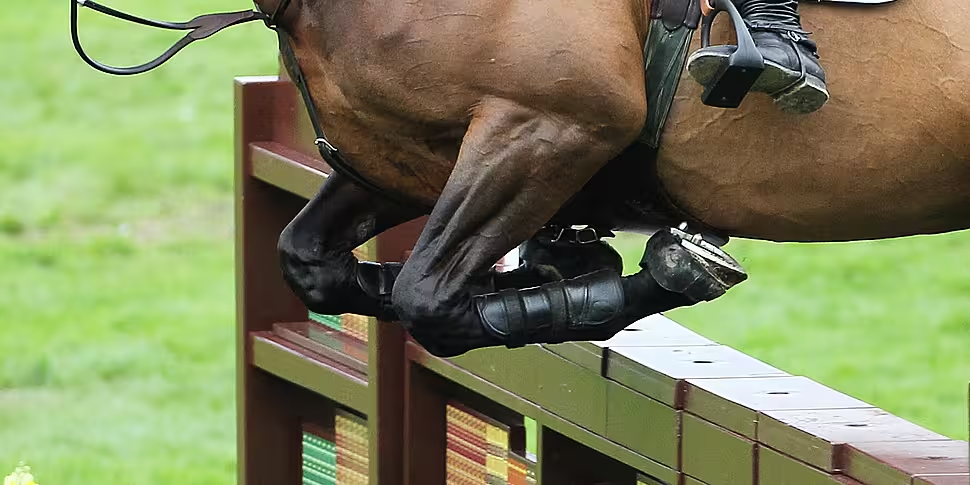The mystery surrounding an Army horse failing a drug test at a competition last May is 'pretty embarrassing' for the Defence Forces.
That's according to Irish Independent Ireland Editor Fionnan Sheahan as the Army denies any error on their part.
The horse, reared in McKee Barracks in Phoenix Park, was participating in a qualifier in Armagh when it was selected for a random blood test.
The test found there was a “controlled substance” in the horse’s blood known as 2-(1-hydroxyethyl) promazine sulfoxide.
While the sedative wasn't a banned substance, it should not be administered during competitions.
Irish Independent Ireland Editor Fionnan Sheahan explained the Defence Forces now face a fine – but they have not admitted to any wrongdoing.
“The Defence Force then conducted their own investigation into what happened here,” he told The Pat Kenny Show.
“They said they were unable to identify or ascertain how the horse was given the prohibited substance.
“There was no indication whatsoever that this horse was in any way injured, so it is a mystery as to how this controlled substance ended up being given to this horse for this qualifier.”
The Defence Forces’ Equitation School has been operating for 98 years and is a “pretty prestigious part” of the Army.
“The owner of this horse is actually the Minister of Defence, who is Tánaiste Micheál Martin,” Mr Sheahan said.
“They're regarded as experts in the field - the commanding officer will be appearing on television providing analysis as an expert on the show jumping in the Olympics,” he said.
“So, it's pretty embarrassing that one of its horses would fail a doping test and [there is] no explanation for it.”
Defence Forces 'forthcoming' in investigation
Mr Sheahan noted the Defence Forces has been “very forthcoming” with helping the investigation into the Army horse and drug test.
The Forces said they “continue to work in close coordination with their team of vets to ensure the health and welfare of all horses in the Equitation School”.
“Each horse's medical history is diligently maintained, and a record of all medications [is] recorded,” they said.
The Army also argued the sedative given to the horse has “no beneficial performance-enhancing effect”.
Mr Sheahan, however, said there are reasons why people would administer sedatives during training.
“There's no suggestion here of anything untoward in relation to [the Army’s] horses,” he said.
 RDS Show Dublin 2013. Image: Trevor Meeks / Alamy Stock Photo
RDS Show Dublin 2013. Image: Trevor Meeks / Alamy Stock PhotoExperts have said, however, that the sedative can be used to calm down horses who may be spooked after hitting their shin on showjumping fences.
“They’re basically saying some horses are sedated to get them used to this process of jumping higher while the fence poles are higher and they're getting hit by them,” Mr Sheahan said.
“If the sedative was being used for some practical medicinal purpose, you'd say that's a reasonable excuse - it normally would take about two to five days to leave the bloodstream.
“But the Defence Forces are saying that is not the case here - this horse was not given this drug for a medicinal purpose recorded by their vets.”
Mr Sheahan noted the Defence Forces has a "distinguished track record” in horses.
The test happened at one of several qualifiers for the Dublin Horse Show, taking place at the RDS from August 14th to August 18th.
Listen back here:









